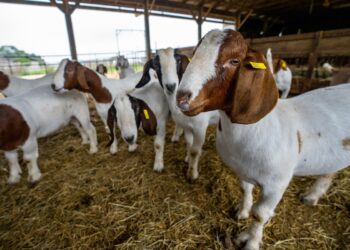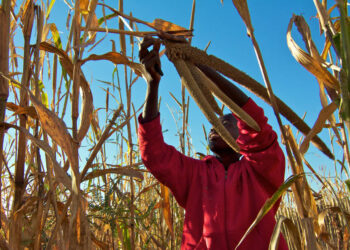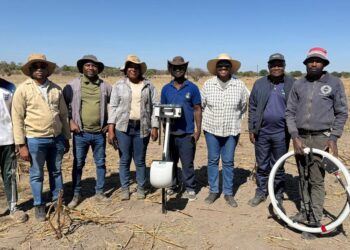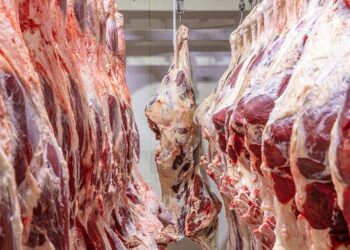
…injects N$120 million into local economy
The Otjimbele Agriculture Project, which has invested N$120 million into Namibia’s economy, is set to start commercial production of ITUM table grapes next year.
With the first commercial harvest of ITUM table grapes set for 2025, the initiative is bringing farming and food production to the country’s Omusati Region, historically overlooked for such ventures.
Otjimbele CEO and Founder Carlos Lertxundi Aretxaga said the project aims to establish Northern Namibia as a new hub for high-value crop production, creating jobs and reducing the country’s dependence on imported produce.
“Next year will mark our first commercial harvest, though it will still be relatively small. The market response has been very enthusiastic, and our goal for this project is to fill a gap in the supply window. Being in the far north, we aim to supply grapes when they are not available in Namibia or South Africa,” he said.
He added that currently grapes are being sold primarily in Namibia, but as production increases, he anticipates exporting to South Africa, Botswana, Zambia, and Angola, as local demand may not be able to keep up.
“Last September, we established a 15-hectare trial plot, and we are currently harvesting and selling the grapes locally and in Namibia. This is our first harvest, achieved within 12 months, which is notable because most grape growers only see a harvest two to three years after planting. Our advanced cultivation methods have allowed us to produce grapes earlier, proving that we can grow grapes in the northern region,” he said.
Located on 300 hectares within the Etunda Green Scheme Irrigation Project, the Otjimbele initiative began as a strategic reinvestment in a former asparagus agro-processing site.
The project has since expanded to include table grapes and other high-demand crops like maize, sweet potatoes, and watermelons.
With a joint venture between Namibian and Spanish investors, Otjimbele is leveraging technology from Spain’s ITUM Research Institute to cultivate seedless grape varieties specially adapted to withstand the harsh northern climate.
“Our initial harvest within 12 months is a game changer. Typically, grapes take years to produce, but we’ve made it happen in record time. The first trial plot has shown that we can grow grapes here despite the challenging temperatures,” Lertxundi noted.
Currently, the project has created around 150 direct jobs, with plans to increase its workforce to 350-400 employees year-round.
The expansion will include the construction of a fresh produce centre with modular cold rooms, positioning the Omusati Region as a key player in Southern Africa’s agricultural supply chain.
“By 2025, we expect to have 200 hectares under grape cultivation. We’re not just growing crops; we’re growing opportunities for the local community. This project will redefine what’s possible for agriculture in Northern Namibia,” said Lertxundi.
In addition to table grapes, Otjimbele continues to cultivate green asparagus, which has already been exported to South Africa.
Current distribution points for the asparagus are Woolworths, Pick n Pay, Checkers, Spar and Food Lovers Market.
The CEO shared these remarks during a media engagement facilitated by the Namibia Investment Promotion and Development Board (NIPDB) on ongoing projects in Namibia.
At the event, he noted that Namibia’s clear policies and robust legal framework, anchored by a strong rule of law, make it an attractive place for investment.
“Unlike some regions where investors might hesitate due to uncertainties around policy stability and legal protections, Namibia offers peace of mind. Here, investors don’t have to worry about losing their projects or businesses due to sudden changes. The dependable legal system ensures that there’s a solid judiciary to support and protect investments, which is crucial for building investor confidence,” he said.
However, he noted that safety is also a critical factor in attracting investors, and recent events in Etunda have been concerning.
“Over the past two weeks, we’ve faced several security issues, including theft of irrigation equipment, which has disrupted our ability to water the crops and posed a significant challenge to the project. We are hopeful that the police and regional authorities will step in soon to address these issues and ease the growing tension. We’re also waiting for the Ministry of Agriculture to fence the area, as this would significantly help mitigate the security concerns,” he said.











